powered
by
FreeFind
Norfolk
Piers
All
images link to larger copies
Hunstanton
Salmon
postcard of Hunstanton Pier
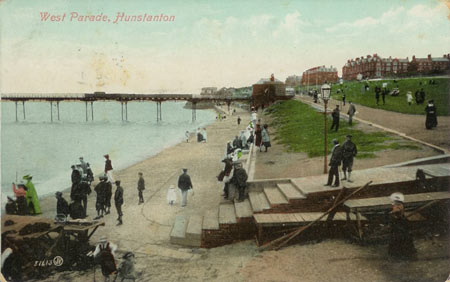
Postcard
of Hunstanton Pier
Scan:
Richard Greenwood
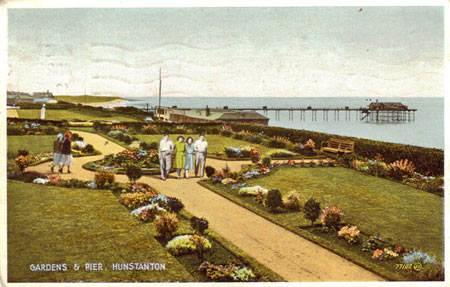
Salmon
postcard of Hunstanton Pier
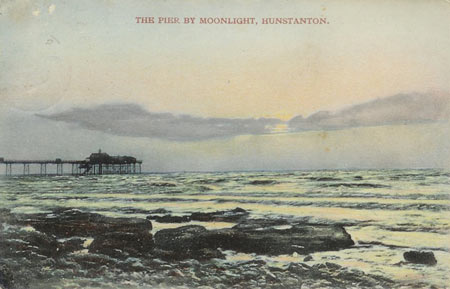
Postcard
of Hunstanton Pier
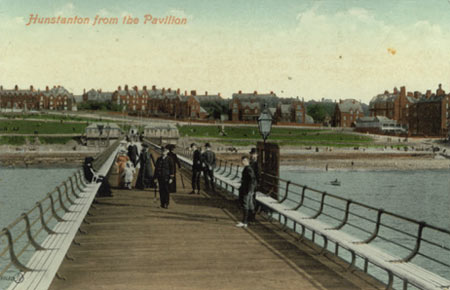
Postcard
of Hunstanton Pier
Scan:
Richard Greenwood
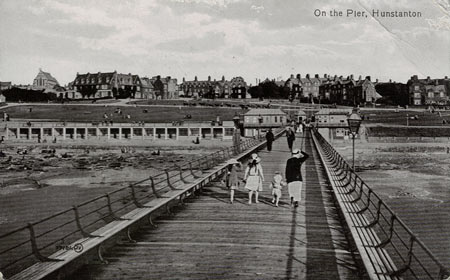
Postcard
of Hunstanton Pier
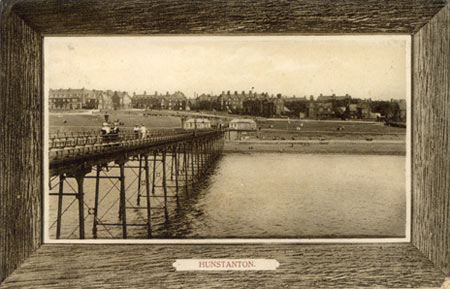
Salmon
postcard of Hunstanton Pier and Cross
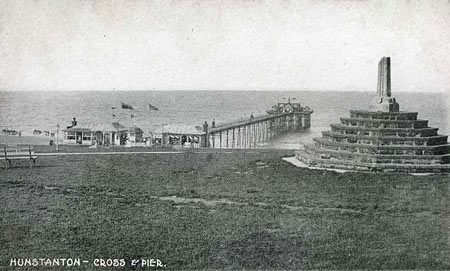
Postcard
of Hunstanton Pier and Cross
New
bench installed!
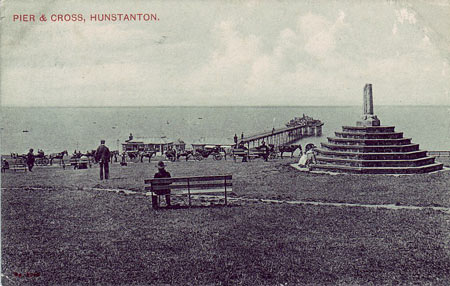
Postcard
of Hunstanton Pier and Cross
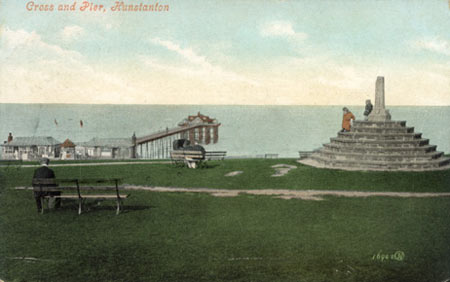
Salmon
postcard of Hunstanton Pier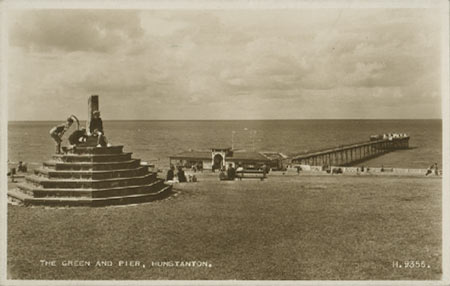 Salmon
postcard of Hunstanton Pier
Salmon
postcard of Hunstanton Pier
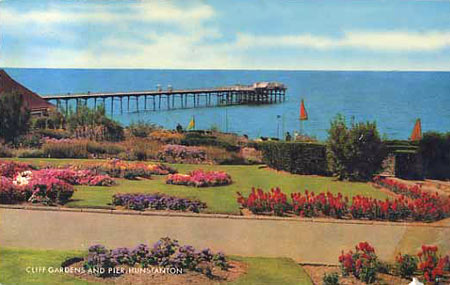
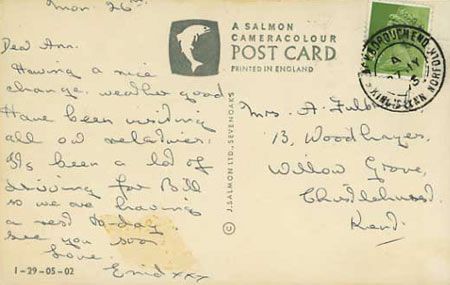
Cromer
There are records of a pier or jetty in Cromer back as far as 1391. In the
year 1582, Queen Elizabeth I granted rights to export wheat, barley and malt
with the proceeds to be used for the maintenance and well-being of the pier
and the town of Cromer.
The first recent pier at Cromer was a 210 foot jetty built in
1822. It was washed away in 1843 to be replaced, two years later, with a 240
foot structure. This lasted until 1890 when it too was destroyed by heavy
seas. A 500 foot iron pier, the work of London engineering firm, Douglass
and Arnott, replaced the second jetty. It opened on 8 June 1901, having cost
£17,000. A bandstand was erected at the head. This was extended in 1905 to
form a pavilion.
Sectioned in 1940 for defence purposes, the gap was
bridged with planks to allow the lifeboat station to be reached (lifeboats
have been stationed here since 1923).
The pier was damaged by storms in
1949, 1953, 1976 and 1978. In February 1990, gales destroyed the amusement
arcade and, on the 14th of November 1993, a 100 ton rig crashed into the
pier, isolating the theatre and lifeboat station. Repairs were made in time
for the 1994 season.
Major reconstruction work has been carried out since
1993 by contractors Dossor East (first winners of the National Piers
Society's 'Peter Mason Award' for engineering excellence. In 1997, the old
lifeboat house and launching ramp were temporarily removed. The pier
pavilion was reopened by actor Stephen Fry on the 27th June 2004, but was
damaged by a storm early in the following year.
The
seaward pavilion continues to stage traditional summer season variety shows
and Sunday concerts. The ambience of the pier is maintained by the complete
absence of any amusement machines or other modern artefacts. (ref:
www.piers.org.uk)
Postcard
of Cromer Pier
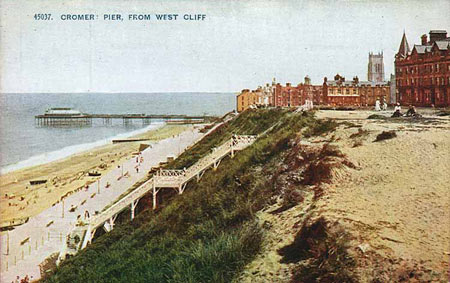
Postcard
of Cromer Pier
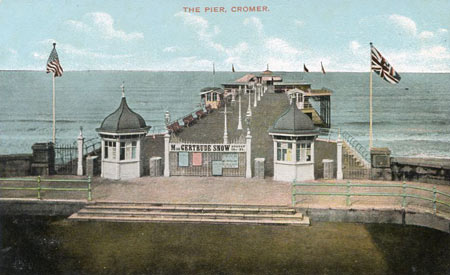
Postcard
of Cromer Pier
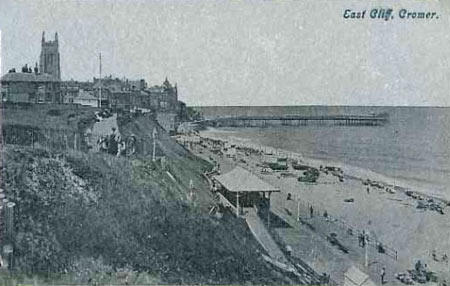
Postcard
of Cromer Pier
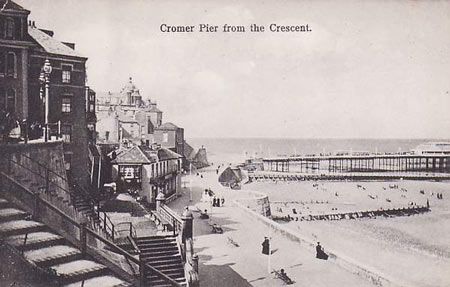
Postcard
of Cromer Pier
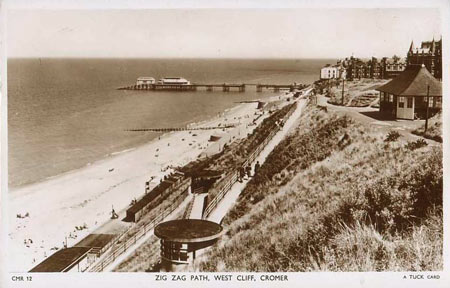
Postcard
of Cromer Pier
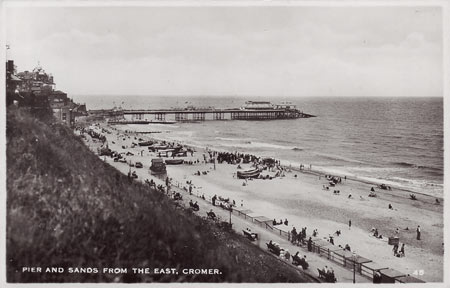
Postcard
of Cromer Pier
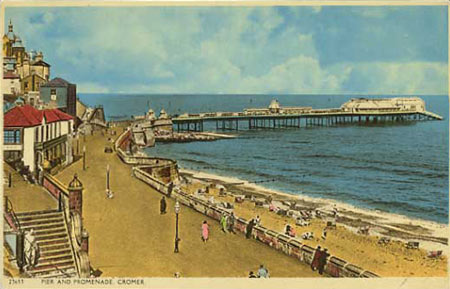
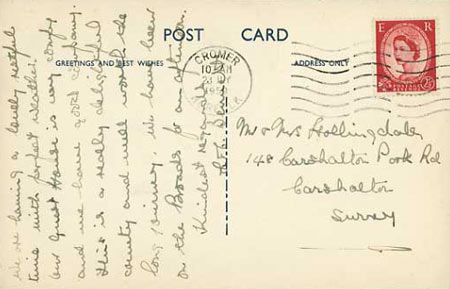
Cromer Pier with modern 1998 lifeboat house
Photo: © Ian Boyle,23rd April 2011
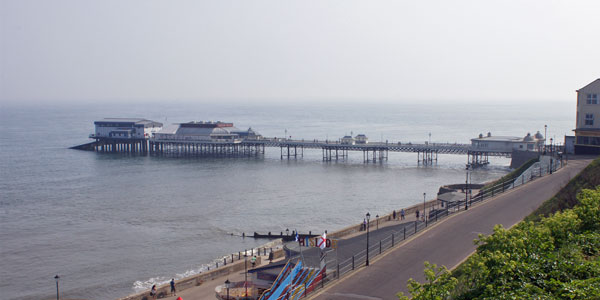
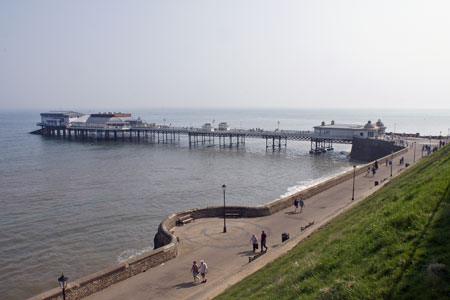
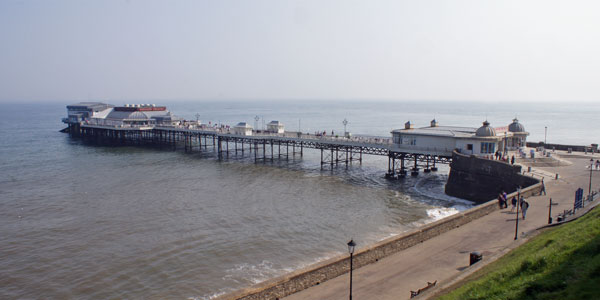
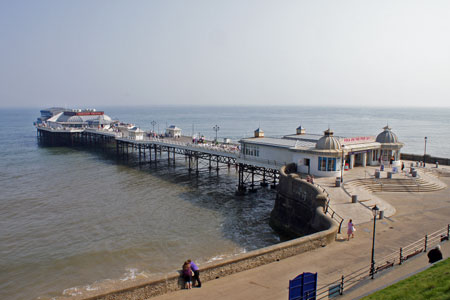
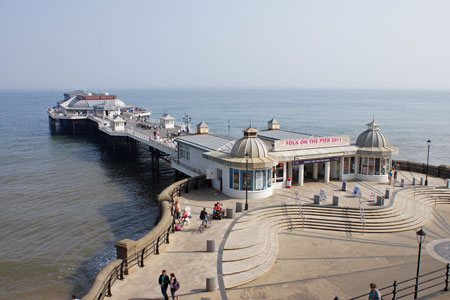
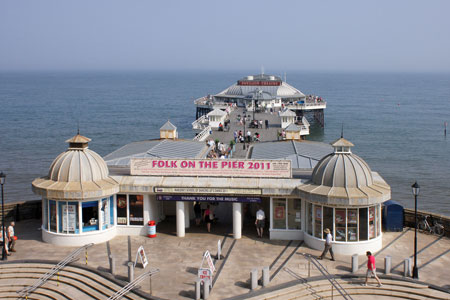
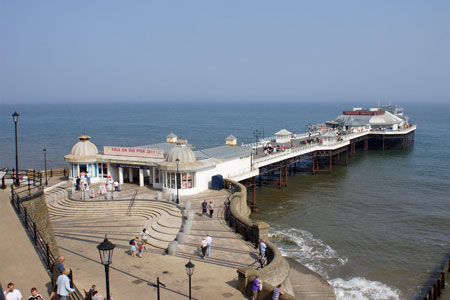
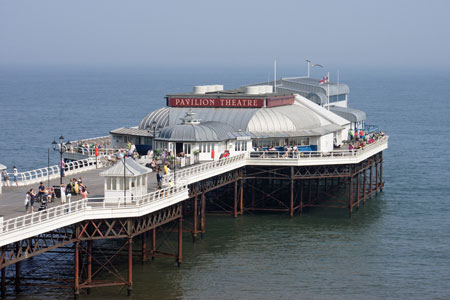
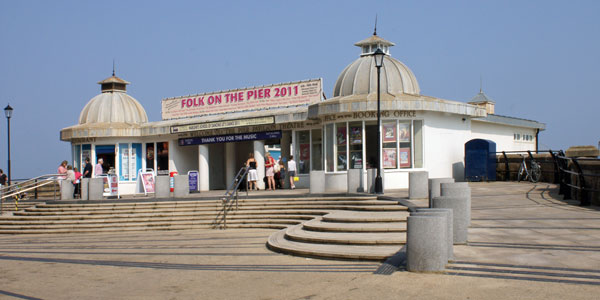
View from Cromer Pier looking towards the town,
church and the Hotel de Paris
Photo: © Ian Boyle,23rd April 2011
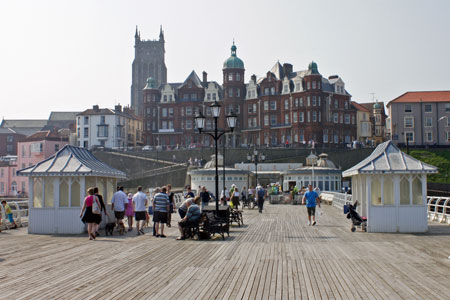
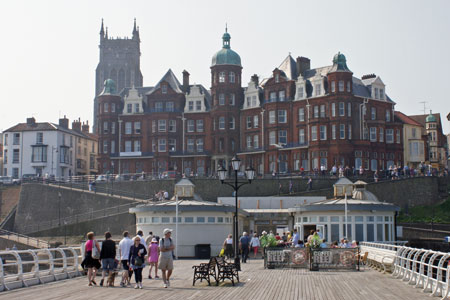
Great Yarmouth Britannia
The Great Yarmouth Britannia Pier was first proposed
in 1856 and work began in September 1857. A.W.Morant was the engineer. The
700 foot structure opened on 13th July 1858. The length of the pier was
reduced by a ship collision in 1859 and storm damage in 1868. It was
demolished in 1899.
A replacement was started on 13th December 1900 to the design of Joseph and
Arthur Mayoh. The 810 foot pier deck and temporary pavilion opened in 1901.
This pavilion was replaced with the grand first pavilion which opened on
21st June 1902. This was, however, destroyed by fire on 22nd December 1909.
The second pavilion designed by Douglass & Arnott was completed in 1910, but
was itself burnt down on 17th April 1914, allegedly by the Suffragettes, who
had been refused permission to hold a meeting there. Within three months a
third pavilion had been built, opening on 27th July.
The Floral Hall Ballroom was opened in May 1928 but was wrecked by fire on
3rd August 1932. A new Grand Ballroom opened in 1933, but this too was
destroyed by fire on 20th April 1954, along with the third pavilion. The
pier was closed and sectioned during the war. It re-opened in 1947 after
repairs. The present pavilion opened on 27th June 1958, but the Ballroom
(called the Ocean Ballroom from 1947) was never replaced.
Previously owned by First Leisure plc, the pier was sold to the present
owners, Family Amusements Ltd, in 1995. The Britannia Pier still provides
popular live theatre shows and boasts a range of food outlets, bars,
amusements and rides.
.
(ref: Wikipedia &
www.piers.org.uk)
Postcard
of Britannia Pier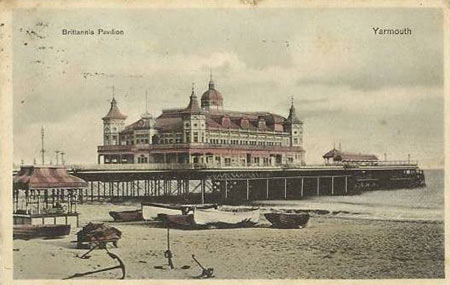
Postcard
of Britannia Pier
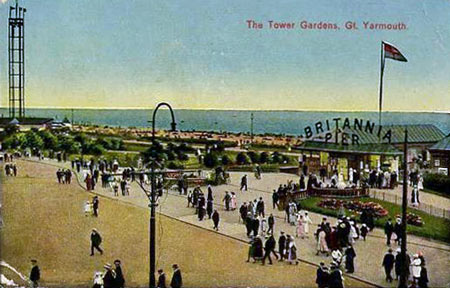
Postcard
of Britannia Pier
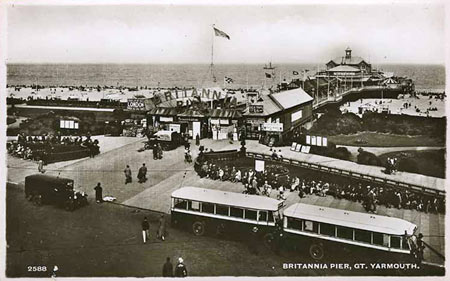
Great Yarmouth Jetty
Great Yarmouth jetty was originally
constructed in 1560 as a place to land fish, and import and export goods. At
the time the town was a major trading and fishing port, and the harbour was
continually silting up, forcing new outlets to the sea to be cut. The jetty,
which in the early days had a crane at the east end, provided a reliable
means of loading and unloading boats.
The jetty was rebuilt in 1701,
but 100 feet of it was swept away in 1767 and later carried away by storm in
1791. The entire structure was nearly destroyed by a storm in 1805. It was
rebuilt without a crane in 1809, and was lengthened in 1846 and again in
1870. A glass roof was added in 1927 which was then declared unsafe and
removed in 1959. In 1961, the timber structure was entirely replaced with a
metal version. None of the original timbers of the jetty survived, with the
possible exception of the timber piles.
Nelson landed at the original
jetty structure in 1800 after the Battle of the Nile. The following year,
Nelson embarked from the jetty to sail with the fleet to the Battle of
Copenhagen, and disembarked there after the battle to visit the wounded at
the nearby Naval Hospital in Yarmouth. During the Napoleonic Wars, the fleet
was frequently assembled in Yarmouth Roads sheltered waters because ships
were too large to enter the harbour, and would be too vulnerable to attack
there. Officers, men and stores were transported to and from their ships
from the jetty. In 1813 William III landed at the jetty when attempting to
raise Dutch troops to oppose Napoleon Bonaparte.
The jetty has also
been used in modern wars, and there was a small gun emplacement - two Bren
guns - at the end of the jetty during the second world war. The structure
was also partially demolished to stop it being used by potential invaders in
the second world war.
The jetty has been a favourite subject for
artists including John Constable. (ref:
www.greatyarmouthmercury.co.uk)
Postcards of Great Yarmouth Jetty
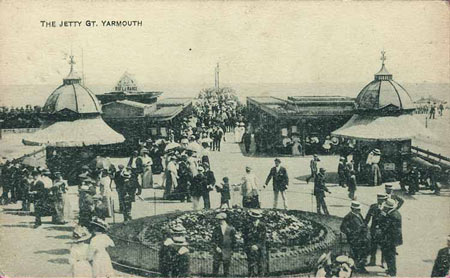
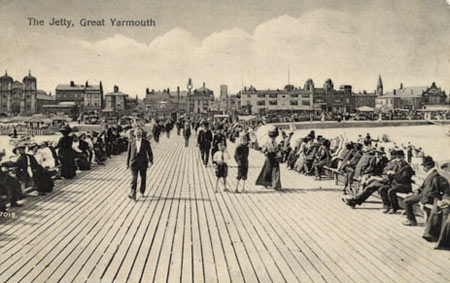
Great Yarmouth Wellington
The Great Yarmouth Wellington Pier was opened on the
31st October 1853 and the 700 feet (210m) wooden structure had cost £6,776
to build. The pier was designed by P. Ashcroft. In its first year open the
pier was a huge success and made an impressive profit for then, of £581.
Five years later a second pier was built close to the Wellington which had a
very large financial effect on the profitability of the pier. By 1899 Great
Yarmouth Corporation bailed out the failing business for the sum of £1,250
and had plans to improve the entertainment and amusement of the pier. On 13
July 1903 a new Pavilion was opened and a failed Winter gardens was bought
from Torquay and was incorporated into the design of the pier.
In 1971, the seaward end was completely renewed at a cost of £30,000. In
1975, further funds were allocated for urgent maintenance. In 1986, the
council's Commercial Management and Estates committee recommended demolition
of the loss-making pier on the grounds that a £1 million pound redevelopment
could not be justified. This led to public protests and new ideas. The
council decided to lease the pier's operations. The entertainer Jim Davidson
took over the lease between 1996 and 2002, but was unable to halt the pier's
deterioration and it was eventually taken over by the present owners, Family
amusements Ltd.
The pier eventually had to be closed for improvement and extensive
restoration works. Work commenced in 2004, partly funded by the Heritage
Lottery Fund, under the Townscape Heritage Initiative. This included the
removal of asbestos cladding and then the refurbishment of the steel and
timber substructure and decking. The pier is now open and houses an
amusement arcade, casino, a fully automatic bowling alley, ice cream parlour
and gift shop.
(ref: Wikipedia &
www.piers.org.uk)
Postcard
of Wellington Pier and Winter Gardens
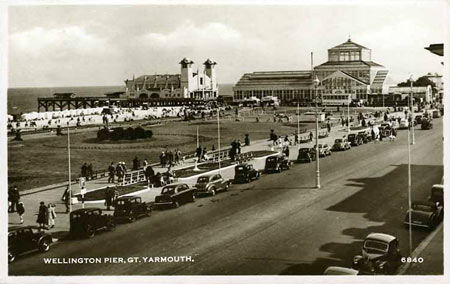
Postcard
of Wellington Pier and Winter Gardens
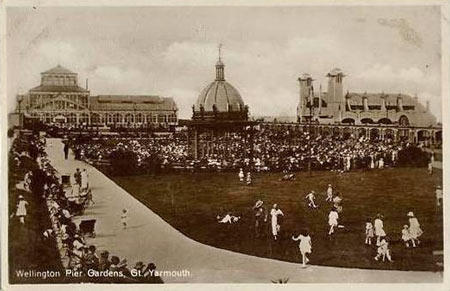
Postcard
of Wellington Pier and Winter Gardens
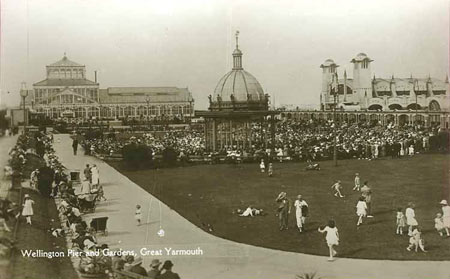
Postcard
of Winter Gardens and Wellington Pier
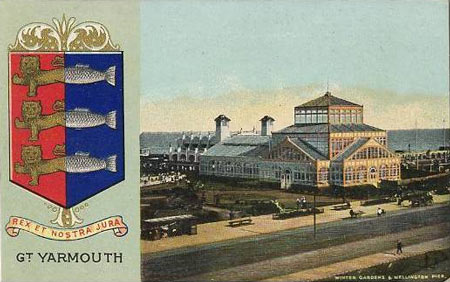
Postcard
of Winter Gardens
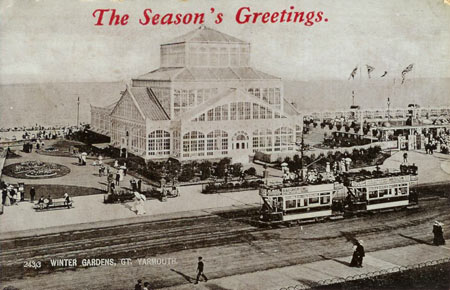
Wellington Pier
Photo: © Ian Boyle,12th July 2012
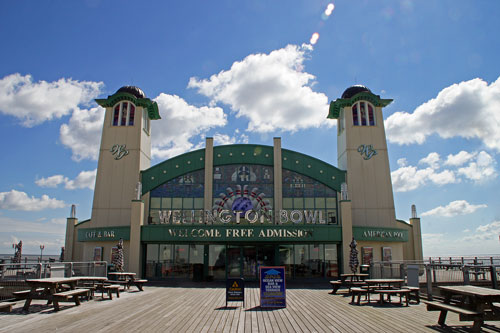
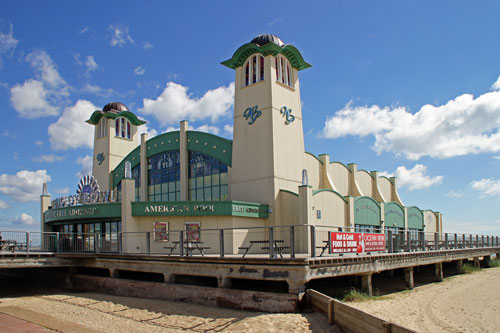
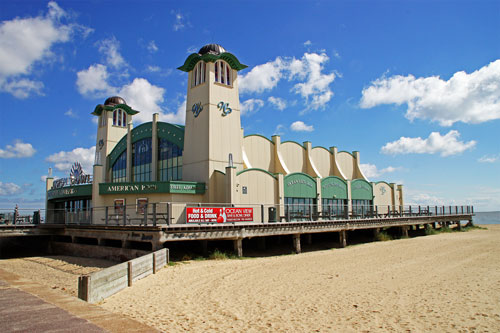
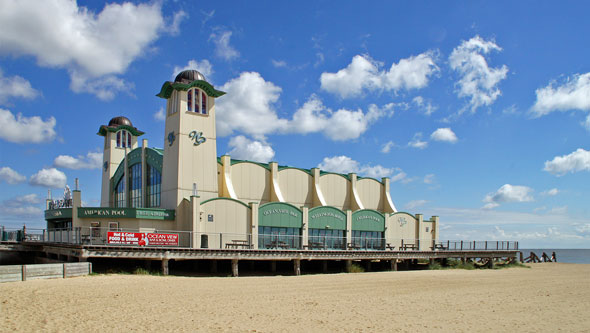
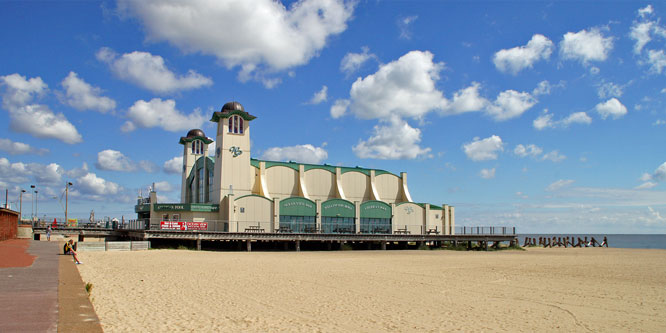
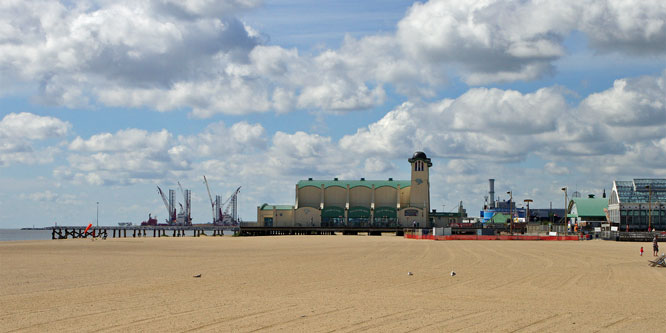
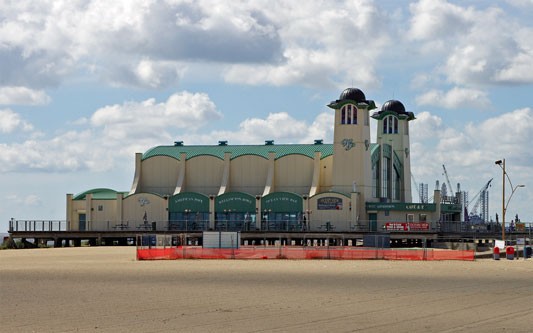
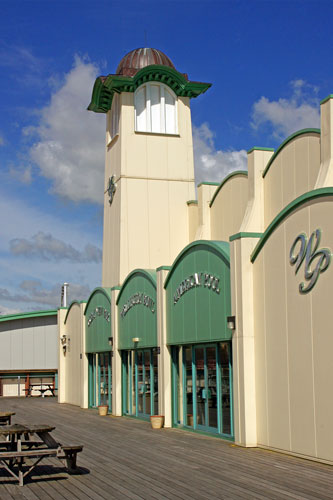
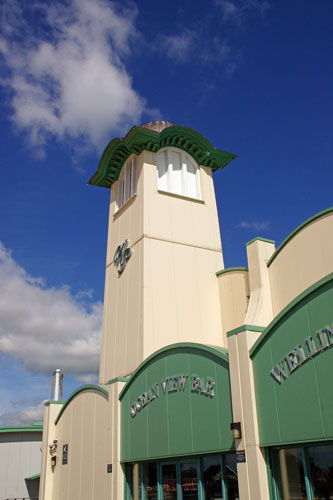
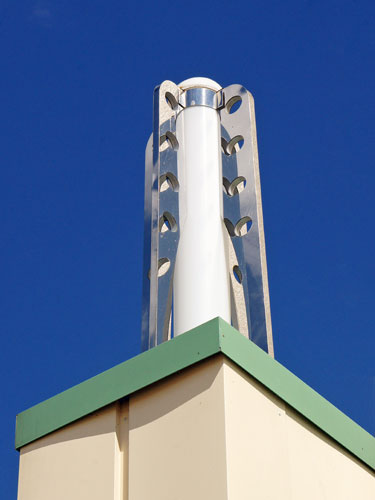
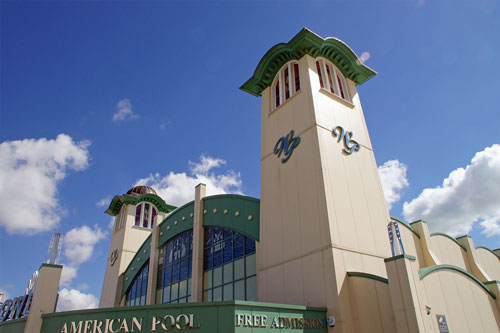
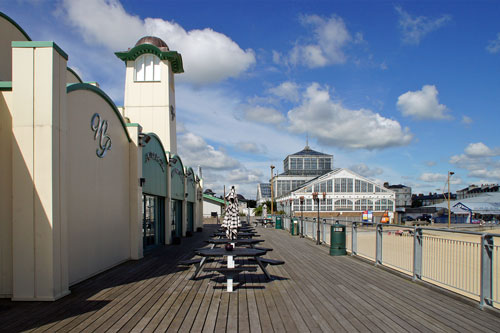
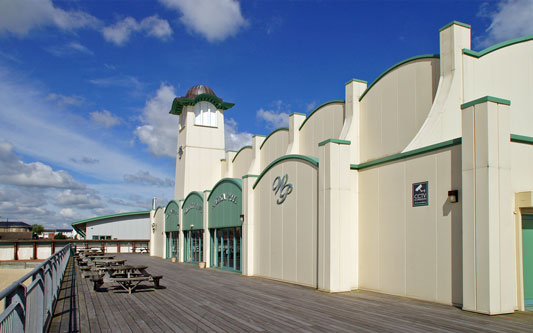
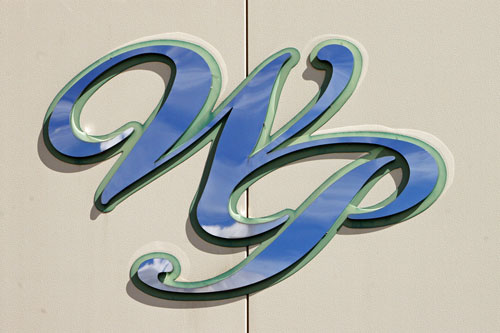
UK
Excursion Ships
-
Ferry
Postcards
-
Cruise
Ship Postcards
-
Ocean
Liner Postcards
Top
of Page
-
Simplon
Postcards Recent Updates -
Simplon Postcards
Home Page